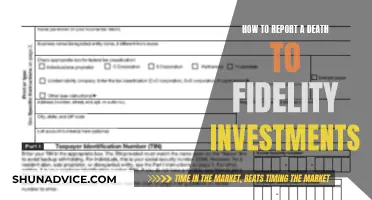
Municipal investment funds are a type of unit investment trust (UIT) that invests solely in municipal securities. Municipal investment trusts allow individuals to invest in a diversified pool of municipal bonds, also known as munis, which passes through tax-free income. Municipal bonds are issued by state or local governments to fund their day-to-day operations or raise funds for public projects, such as bridges, roads, and schools. The interest paid on these bonds is usually exempt from federal income taxes and may also be exempt from state and local taxes for investors who live in the same state or municipality where the bond was issued. Municipal investment funds are designed for higher-income investors seeking tax-free income.
| Characteristics | Values |
|---|---|
| Type of fund | Municipal investment trusts, municipal bond funds |
| Type of investment | Unit investment trust (UIT) |
| Investment type | Municipal securities, municipal bonds |
| Income | Tax-free |
| Investor type | Higher-income, high net worth, higher tax brackets |
| Payout frequency | Monthly |
| Risk | Low, conservative |
| Management | Active, passive |
| Fees | Low management fees |
What You'll Learn
- Municipal bonds are debt securities issued by local, county, and state governments
- Municipal bonds are often exempt from most taxes
- Municipal bonds are issued to fund public projects
- Municipal bonds are considered low-risk investments
- Municipal investment trusts are designed for higher-income investors seeking tax-free income

Municipal bonds are debt securities issued by local, county, and state governments
Municipal bonds, or "muni bonds", are debt securities issued by local, county, and state governments. They are commonly offered to pay for large-scale capital expenditures, such as the construction of highways, bridges, schools, hospitals, water treatment facilities, power plants, courthouses, and other public buildings. Municipal bonds act like loans, with bondholders becoming creditors. In exchange for lending capital, bondholders/investors are promised interest on their principal balance, which is repaid by the maturity date.
Municipal bonds are often exempt from most taxes, making them attractive to people in higher income tax brackets. The interest on municipal bonds is usually exempt from federal income tax, and may also be exempt from state and local taxes if the bondholder resides in the state where the bond is issued. This makes municipal bonds tax-efficient investments.
There are two main types of municipal bonds: general obligation bonds and revenue bonds. General obligation bonds are issued by states, cities, or counties and are not secured by any assets. Instead, they are backed by the "full faith and credit" of the issuer, which has the power to tax residents to pay bondholders. Revenue bonds, on the other hand, are not backed by the government's taxing power but by revenues from a specific project or source, such as highway tolls or lease fees.
Municipal bonds are considered low-risk investments, with a high expectation of recouping the investment plus interest. However, municipal bond rates may be lower than the potential returns of riskier assets, such as stocks. Therefore, municipal bonds are best considered as part of a long-term investment strategy, providing reliable income and tax efficiency.
Funding Investments: Strategies for Covering Total Amounts Received
You may want to see also

Municipal bonds are often exempt from most taxes
Municipal bonds are debt securities issued by state, city, county, or local governments to fund capital expenditures. They are commonly exempt from federal taxes and often from state and local taxes, too.
Municipal bonds are often referred to as tax-free because they come with favourable tax treatment compared to other types of bonds. The interest earned on bonds issued by state and local governments is typically not taxed at the federal level. This federal tax exemption is a significant advantage of municipal bonds, making them attractive to investors, especially those in high-income tax brackets.
However, it's important to note that municipal bonds may still be subject to state and local taxes, depending on the investor's state of residence and the state where the bond was issued. Some states do not tax in-state bonds, while others may tax both in-state and out-of-state bonds. Additionally, certain types of municipal bonds, such as private activity bonds, are exempt from federal taxes under the regular income tax system but are subject to the alternative minimum tax.
When investing in municipal bonds, it is beneficial to check the specific tax implications of each bond, as unexpected tax bills may arise, especially on any capital gains. While the interest income is usually tax-exempt, capital gains realised from selling a bond are typically subject to federal and state taxes.
Overall, municipal bonds offer a unique opportunity for investors to support public projects while also benefiting from tax exemptions, making them a popular choice for those seeking tax efficiency in their investment portfolios.
Investment Funds: Exploring Their Investment Opportunities
You may want to see also

Municipal bonds are issued to fund public projects
Municipal bonds are debt securities issued by local, county, and state governments. They are commonly issued to fund public projects, such as the construction of highways, bridges, schools, hospitals, and other infrastructure. These bonds are often referred to as "muni bonds" or "munis" and act as loans, with bondholders becoming creditors.
When a local or state government issues a municipal bond, they are borrowing money from investors, who expect to receive interest payments over the term of the bond. At the maturity date of the bond, the full value of the principal is repaid to the investor. Municipal bonds can be issued to fund day-to-day obligations or to finance specific capital projects.
There are two main types of municipal bonds: general obligation bonds and revenue bonds. General obligation bonds are issued by governmental entities and are backed by the "full faith and credit" of the issuer, which includes the power to tax residents to repay bondholders. Revenue bonds, on the other hand, are backed by revenues from a specific project or source, such as highway tolls or lease fees.
Municipal bonds are often attractive to investors because the interest earned on the bonds is often exempt from federal, state, and local taxes. This makes municipal bonds a tax-efficient investment, particularly for those in higher income tax brackets. However, it's important to note that municipal bond rates may be lower than potential returns on riskier assets like stocks.
Municipal bonds play a crucial role in funding public projects and providing communities with essential infrastructure. They offer investors a relatively safe and stable investment option with potential tax benefits.
Maximizing Investment Returns: Strategies for Utility-Focused Investors
You may want to see also

Municipal bonds are considered low-risk investments
There are two main types of municipal bonds: general obligation bonds and revenue bonds. General obligation bonds are issued to raise funds for immediate expenses and are backed by the taxing power of the issuer. They are considered very safe due to their reliance on property taxes or other revenue streams. Revenue bonds, on the other hand, are used to finance infrastructure projects and are supported by the income generated by those projects. While revenue bonds are more vulnerable to changes in consumer tastes or economic downturns, they still have a low default risk compared to corporate bonds.
The interest rates on municipal bonds are generally lower than those on riskier assets like stocks or corporate bonds. This is because municipal bonds are considered relatively safe investments. Additionally, the tax benefits of municipal bonds play a role in their desirability. Municipal bonds are an attractive option for investors in higher tax brackets, as they can provide tax-free income.
While municipal bonds are considered low-risk, they are not entirely risk-free. There is a chance that the issuer may struggle to make interest payments or repay the principal upon maturity. Other risks include interest rate risk, where the value of the bond can drop if market rates rise, and call risk, where the issuer may repay the bond early, cutting off expected interest payments.
Overall, municipal bonds are considered a stable and low-risk investment option, providing tax benefits and a reliable income stream for investors. They are particularly appealing to those seeking to preserve capital and generate tax-free income.
Index Funds vs Savings: Where Should Your Money Go?
You may want to see also

Municipal investment trusts are designed for higher-income investors seeking tax-free income
Municipal investment trusts are a type of unit investment trust (UIT) that deals exclusively in municipal securities. UITs are investment companies that offer a fixed portfolio of stocks and bonds to investors for a specific period. Municipal investment trusts allow individuals to invest in a diversified pool of municipal bonds, also known as munis, which provide tax-free income.
The main advantage of municipal investment trusts is the monthly payout of income, in contrast to the quarterly or semi-annual payments common with individual municipal bonds. Additionally, municipal investment trusts offer diversification at a low price, with a low initial investment requirement.
It is important to note that municipal investment trusts have limitations on buying or selling prior to maturity, which restricts some investment strategies. The inability to take advantage of shorter-term market conditions may be a drawback for investors seeking more tactical approaches.
Overall, municipal investment trusts cater to higher-income investors by providing tax-free income through investments in municipal bonds, offering diversification and a regular income stream.
Strategies for Investing in Third Point Hedge Fund
You may want to see also
Frequently asked questions
Municipal investment funds are a type of unit investment trust (UIT) that invests solely in municipal securities. Municipal investment funds are designed for higher-income investors seeking tax-free income.
Municipal bonds are debt securities issued by local, county, and state governments. They are commonly offered to pay for capital expenditures, including the construction of highways, bridges, or schools.
There are two types of municipal bonds: general obligation bonds and revenue bonds.







